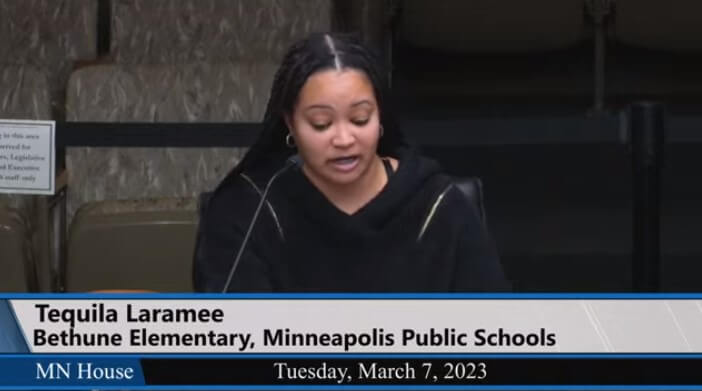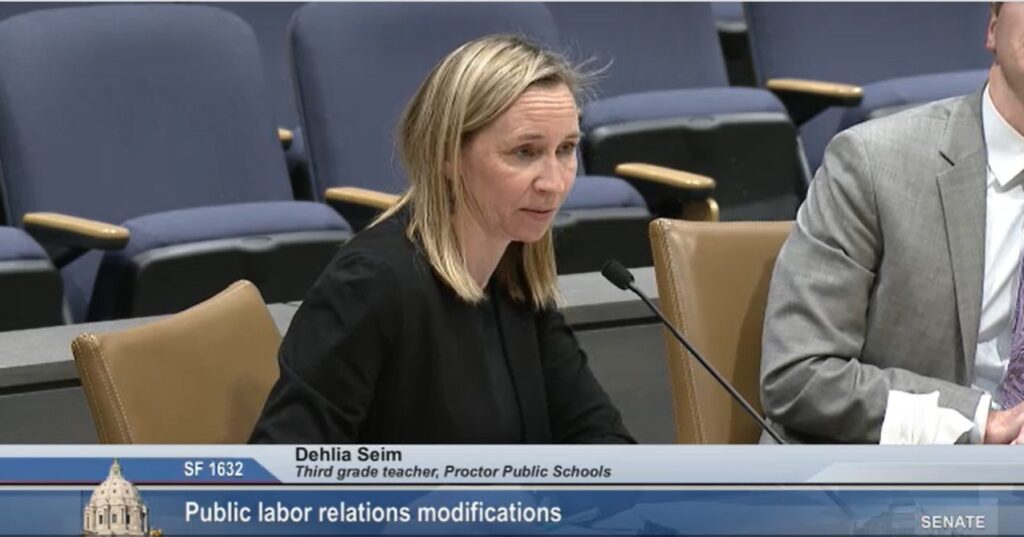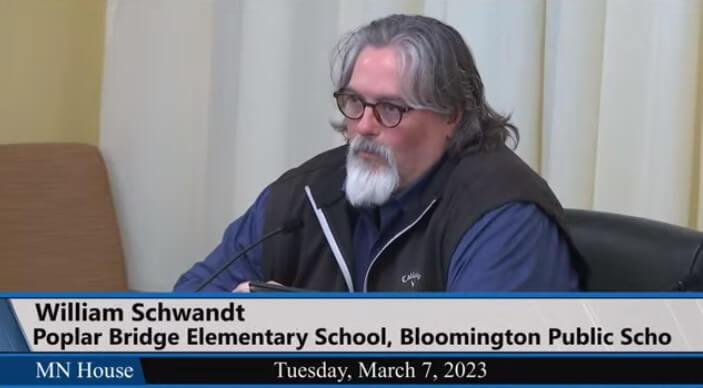The pro-public education and union majorities elected last fall are working hard on moving a large amount of education and labor bills already this session.
More than 20 education and labor bills that Education Minnesota has supported have been introduced and are moving through committees. More than 100 Education Minnesota members have testified in support of these bills either in person or virtually. There have been more than 50 hearings on these bills.



What happens next?
As of press time, the first deadline, which requires all bills to be approved by at least one committee, already has passed. The next deadline of March 24 means that bills must be passed out of the relevant committees in the opposite legislative body (e.g. House or Senate) by March 24 to remain viable for the remainder of the session. By the third and final deadline on April 4, committees will have passed their major budget bills. That means that by early April, we will have a clear picture of legislative leaders’ plans for the education budget for the next two years.
Has anything passed yet related to education?
Yes! As of press time, one education-related bill has been signed into law. HF5 (Jordan)/SF123 (Gustafson) was signed by Gov. Tim Walz on March 17. Next year, the students and families that we serve will not have to deal with lunch debt. In fact, every kid in Minnesota will go to school knowing that they can get breakfast and lunch when they need it. We know hungry kids can’t learn, and this will solve a massive headache for staff that have to chase down families to pay bills.
What are the education and union issues being discussed?
Education Minnesota has been working with our members, as well as in coalition with other labor unions and community groups, to advocate for numerous issues.
- Per-pupil formula increases.
- ESP Bill of Rights, which would provide financial and professional support for education support professionals. Read more about that bill on page 8.
- Pension reform, including bills in support of the Education Minnesota Pension Task Force recommendations. Read more about our pension advocacy work on page 9.
- Funding the special education and English learner cross subsidies.
- Health care affordability, including support for locals who are in PEIP.
- Negotiated class size limits.
- Dedicated funding for more student support personnel, such as licensed school nurses, school social workers, school psychologists, school counselors and chemical dependency counselors.
- Funding for more full-service community schools.
- More dedicated prep time.
- Paid special education due process time.
- Expanding bargaining subject matters to include more issues that come up in the classroom and issues like e-learning days.
- Allowing unions more access to member information from districts and more time to meet with members during the day.
- Contract parity for ECFE/ABE teachers.
- Allowing Tier 1 teachers to join the bargaining unit.
- Access to unemployment insurance for hourly school workers.
- Dedicated training for paraprofessionals who work with special education students.
- Requiring teachers to have completed a teacher prep program before receiving a Tier 2 license.
- Increased teacher voice on the Minnesota Professional Educator Licensing and Standards Board.
- Providing comprehensive services to a school identified as in need of comprehensive support under the Every Student Succeeds Act, in hopes of closing the achievement gap.
- Property tax equalization to help districts decrease their reliance on levy elections.
- Better support for teacher candidates, including a teacher residency grant program.
- Properly funding the Public Employee Relations Board to ensure the board can support the state’s unions.
- Designating a student loan advocate to provide timely assistance to borrowers.
- Transportation support for students attending area learning centers.
- Requiring licensure for Pre-K teachers.
Stay informed! Education Minnesota members can look for the latest news on what is happening at the Legislature in the weekly Capitol Connection email. Follow Education Minnesota on social media for the latest news and to see which members are testifying on which bills.


